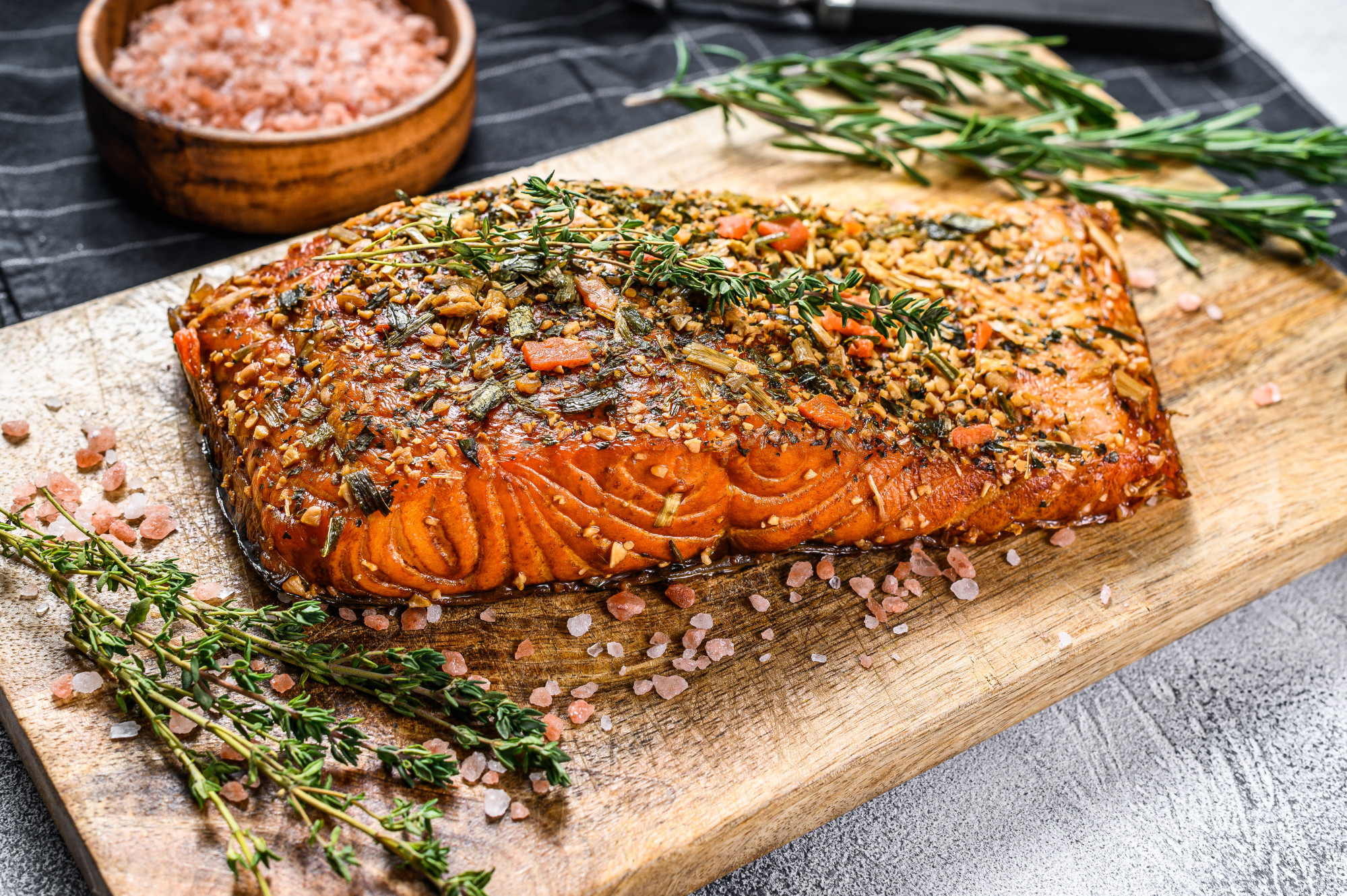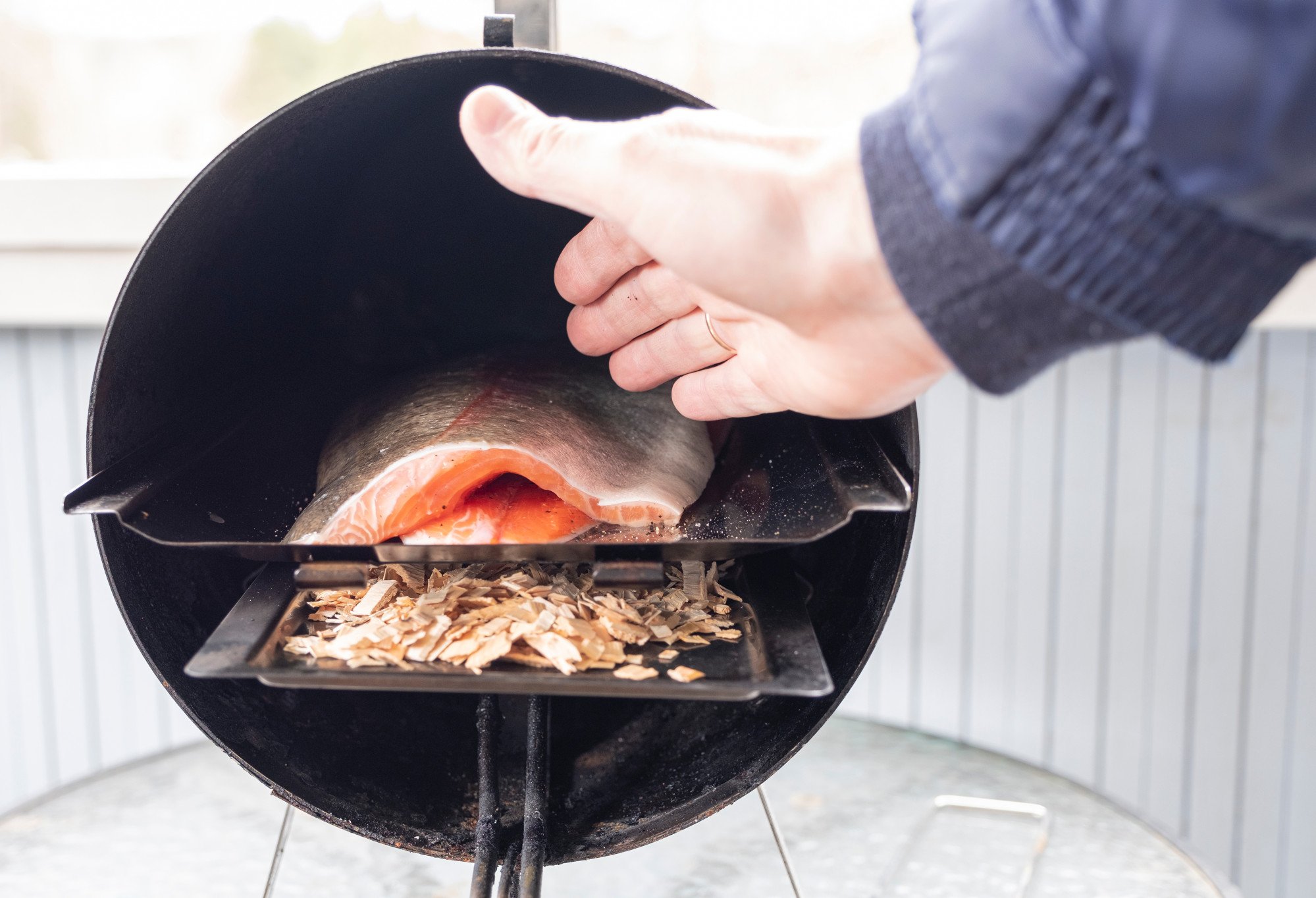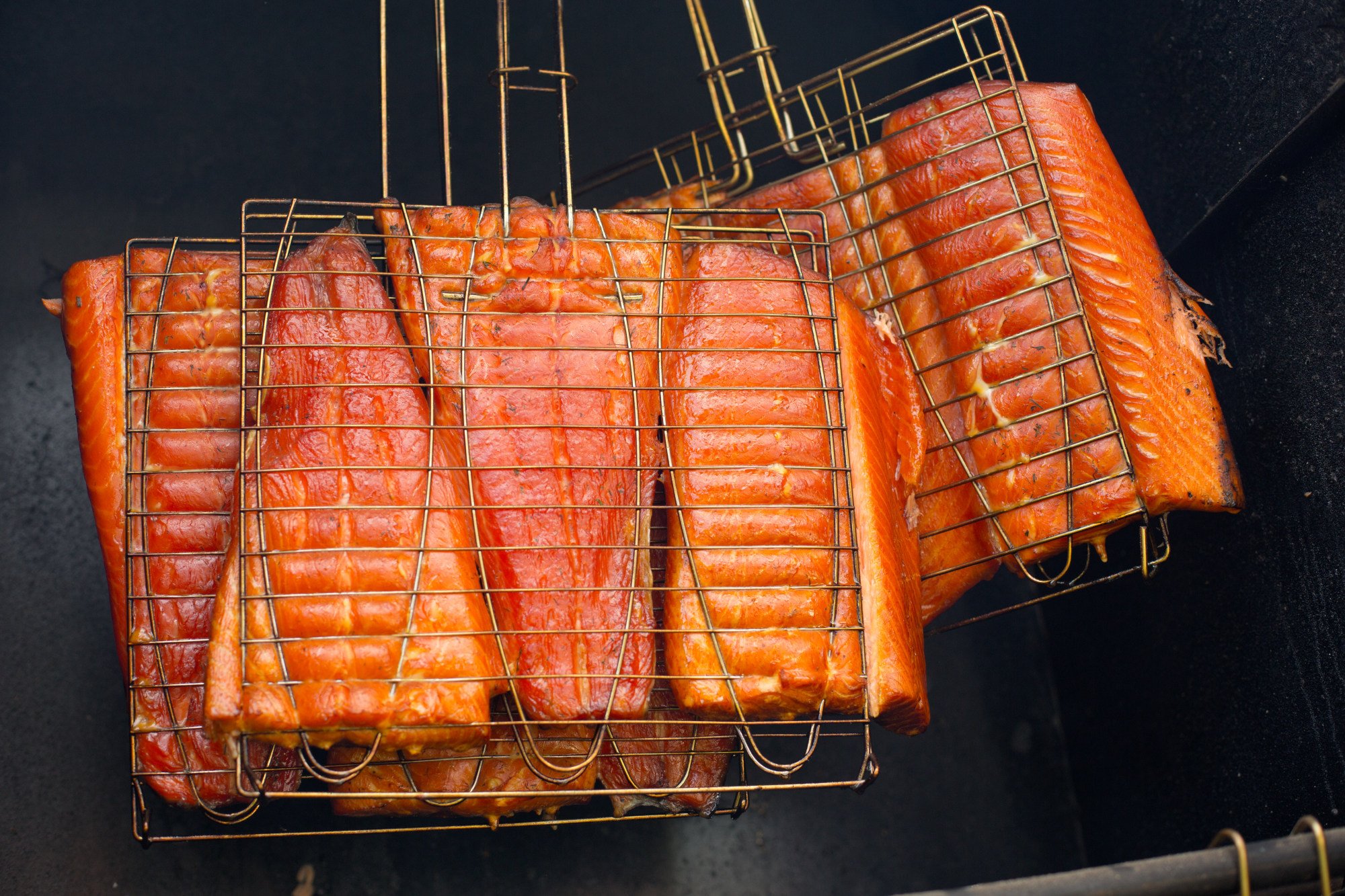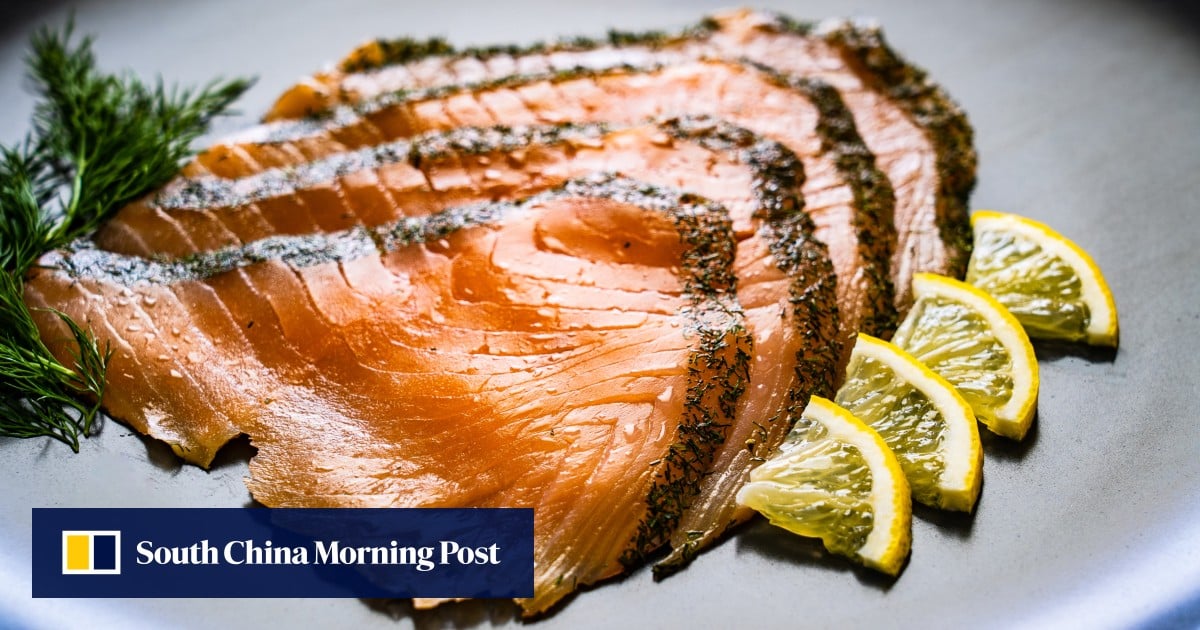According to Hong Kong’s Centre for Food Safety (CFS), hot-smoked salmon is smoked at a temperature of between 70 and 80 degrees Celsius (158 to 176 degrees Fahrenheit). On the other hand, cold-smoked salmon, which takes three to four days to process, is smoked at a temperature no higher than 33 Celsius (91 Fahrenheit).
In other words, cold-smoked salmon is most definitely uncooked – which accounts for its translucent appearance and silky texture. Hot smoking produces cooked flesh that offers a flakier look and a smokier taste.

Despite most processors opting for the cold-smoking method, uncooked salmon can contain a pathogen called Listeria monocytogenes that will survive refrigeration, the USDA says.
While these bacteria are only present in low levels in raw salmon, it stands to reason that cold smoking reduces rather than fully eliminates them.

The CFS notes that foods containing small amounts of the bacteria pose very little risk to most consumers. However, ingesting high levels of the bacteria can put anyone at risk of listeriosis.
This food-borne infection can cause fevers, body aches, fatigue, a loss of balance, seizures, intestinal issues, and, in rare cases, death, says the US Centres for Disease Control and Prevention.
Old people, young children, and immunocompromised individuals are particularly vulnerable to the symptoms of listeriosis, the CFS warns. Getting infected during pregnancy can lead to miscarriage, stillbirth, premature delivery, or infection in newborns, it says.
Cooks’ questions: how long does ground turkey last in the freezer?
Cooks’ questions: how long does ground turkey last in the freezer?
The CFS recommends that susceptible populations avoid consuming cold-smoked salmon to be on the safe side.
Cold-smoked salmon is, according to food safety experts, considered generally safe to eat: most healthy individuals do not develop symptoms of listeriosis or have only mild symptoms when infected.
In addition to the potential risk from consuming raw salmon, handling it along with other food products, whether in production plants or home kitchens, has the potential for cross-contamination.

It’s best to store smoked salmon strictly according to instructions on the label.
The USDA recommends refrigerating vacuum-sealed cold-smoked salmon from the date of purchase and eating it within 21 to 30 days; if you freeze it, you should eat it within nine to 12 months, it says.
Vacuum-sealed hot-smoked salmon, on the other hand, can last in the fridge for 14 to 45 days after purchase and be frozen for up to a year before eating.
Tomato soup: we boil down the health benefits for you
Tomato soup: we boil down the health benefits for you
Take note of the recommended use-by date on your smoked salmon packaging – a change in colour or smell will indicate that it’s gone bad – and be sure to consume smoked salmon as soon as possible after opening. Susan Westmoreland, food director for Good Housekeeping, suggests storing opened smoked salmon for no longer than a week.
Lastly, don’t forget to clean surfaces that come into contact with smoked salmon to prevent cross-contamination.

